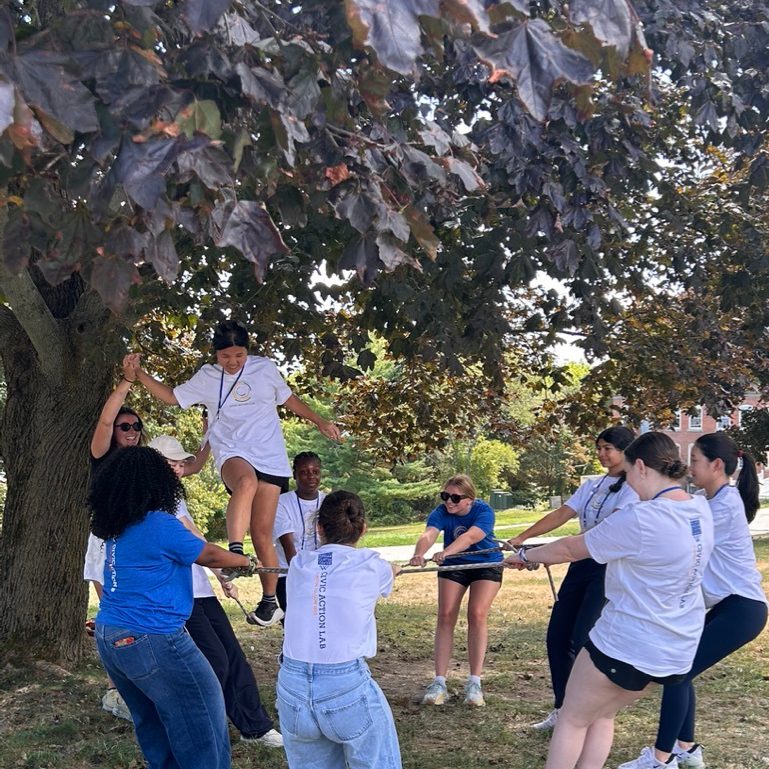The Clinton Fellows sophomore experience—with 110 participants—kicked off with the multi-day Civic Action Lab in August prior to the start of the fall semester. Students took part in community-building programming, practiced constructive dialogue, discussed styles of leadership and social impact ecosystems, packed 27,000 meals for local food banks, and heard from civic innovators and thought leaders including large-scale fiber artist and educator Janet Echelman.
The Clinton Fellows program is part of the Hillary Rodham Clinton Center for Citizenship, Leadership, and Democracy, which is part of the Wagner Centers for Wellesley in the World.
-
While on Cathleen Stone Boston Harbor Island, students explored characteristics of a civic impact ecosystem, their role in civic action, and participated in constructive dialogue. -

Outward Bound led students in experiential self-discovery and community building programming. Photo by Anne Buckley
-
During the week, Clinton Fellows had time for small group and partner conversations about constructive dialog, their “whys” for civic engagement, ways to build community, and reflection. -
Balla Kouyaté (left) shows students the underside of a balafon, a type of xylophone with centuries-old roots in West Africa. He performed during the Civic Action Lab, along with Shaw Pong Liu. Both are members of the Silkroad Ensemble founded by world-renowned cellist Yo-Yo Ma.
-
-
The Clinton Fellows traveled to Artists for Humanity headquarters and gallery for dinner with 25 greater Boston civic innovators from a wide range of professions including an infectious disease doctor, the first African American woman superintendent of the Boston Police department, the founder of City Year, as well as urban designers and architects.